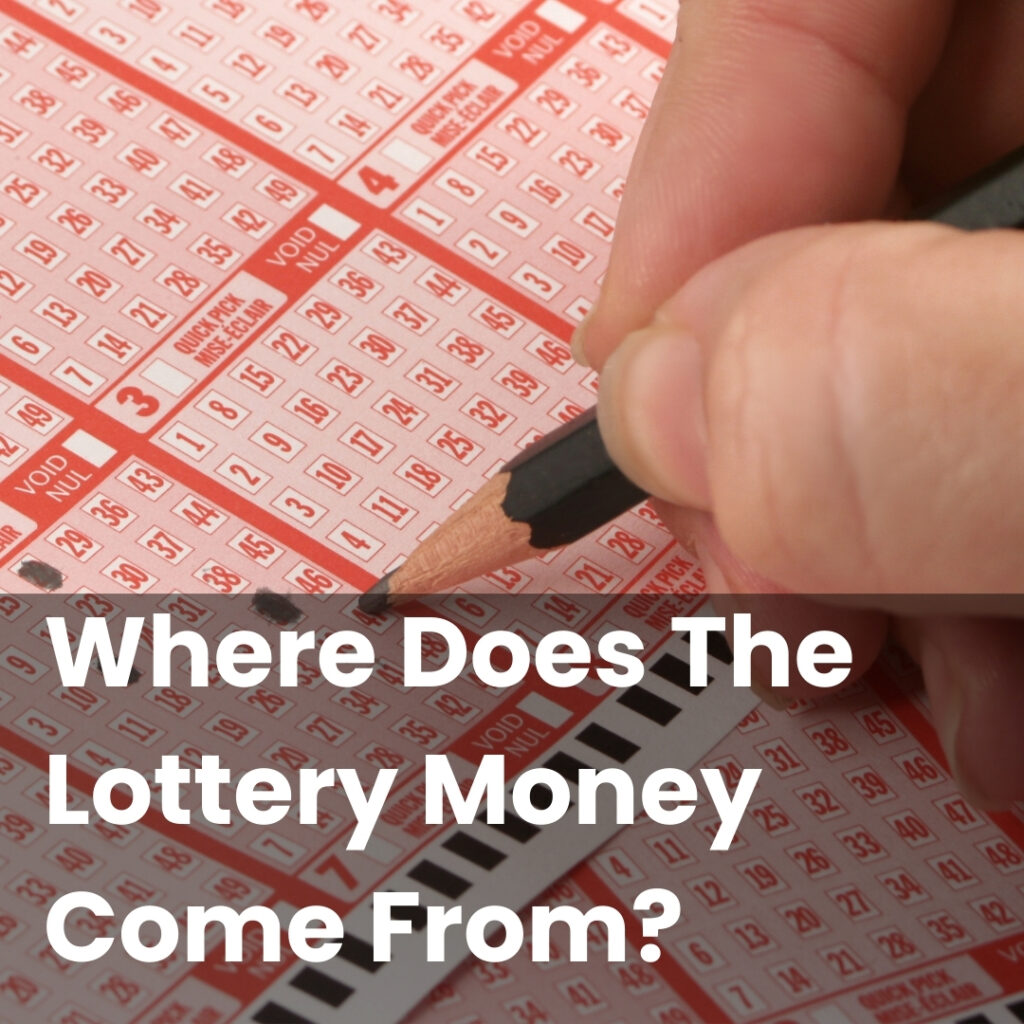Have you ever wondered where the money for those massive National Lottery jackpots comes from?
Each week, millions of people across the UK buy a ticket, thinking of what they would do if they won the jackpot. But what happens to all that money collected from eager players?
Join us as we uncover the journey of lottery money, from the moment you buy a ticket to the final draw. Discover how much of your ticket price goes to prizes and where the rest ends up. By the end of this post, we hope to provide you with a clear picture of how the National Lottery operates and who ultimately benefits from your ticket purchase.
Where Does The Lottery Get Their Money From?
The National Lottery mainly gets its money from people purchasing tickets. Each week, players across the UK buy tickets for a chance to win big, contributing to a substantial pool of funds.
Another source of income is scratchcards and instant win games. Players can buy these in shops and online, which also adds to the lottery’s funds.
Beyond ticket sales, the National Lottery benefits from partnerships and investments. While these make up a smaller portion of the income, they still contribute to the overall funds available for draws and prizes.
All this money is carefully managed to ensure a fair distribution between prize winnings, good causes, and operational costs. This balance is crucial in maintaining the integrity and purpose of the National Lottery.
Whether you are buying a ticket or just curious, understanding these sources gives you a clearer picture of how the National Lottery keeps things running and continues to offer those exciting jackpot possibilities.
How Much Does The Lottery Make?
The National Lottery generates billions of pounds each year through ticket sales. In the 2022/2023 financial year, for instance, sales reached over £8 billion, showing just how popular the games are across the UK.
These sales come not just from main lottery draws but also from additional games like scratchcards and instant win games. Each of these contributes to the overall income.
A large portion of this money is returned to players as prizes, but it does not stop there. The remaining funds are distributed in specific ways, supporting good causes, covering operational costs, and providing returns to the government as tax.
This steady stream of revenue allows the National Lottery to continually offer exciting games while funding projects that benefit communities and individuals around the country. It is a balancing act that ensures public confidence in the lottery remains high.
See Our Top-Rated Online Casinos
Find the best online casino bonuses, read reviews from real players & discover brand new casinos with our list of recommended sites
Does Lottery Money Go To Charity?
Yes, lottery money does play a significant role in supporting charitable causes. A portion of every ticket sold is dedicated to funding projects that benefit communities across the UK.
These funds are distributed through four main sectors: arts, sport, heritage, and community initiatives. Organisations and projects can apply for grants to help make a positive impact in their area.
Since its start, the National Lottery has raised billions of pounds for thousands of good causes. This funding supports local initiatives, such as sports clubs and cultural events, and larger projects like heritage conservation.
It is important to know that if you purchase a ticket, you are not just entering a draw. You are also contributing to a wide range of projects that aim to improve the quality of life for many people.
So, while not all of your ticket money goes directly to charity, a significant portion does, helping make a real difference in communities throughout the UK.
It is also worth noting that any unclaimed prizes that surpass the 180-day claiming window are automatically put into the National Lottery’s charitable causes fund. So, even if people miss out on their prizes, it is going towards a good cause.
Where The Lottery Money Goes
If you buy a ticket for the National Lottery, the money is divided among several important areas. Let’s take a closer look at where it all goes.
First, a significant portion is returned to players as prizes. This is what makes the National Lottery thrilling, with draws offering chances to win anything from small amounts to massive jackpots.
Next, a substantial share is allocated to good causes. This money supports a wide range of projects across the UK, from local community initiatives to national arts, sports, and heritage projects.
Operational costs and retailer commissions also take a slice of the pie. These funds ensure that the lottery runs smoothly and that retailers are encouraged to sell tickets.
Lastly, a portion goes to the government as duty. This contributes to public services, making sure that something is given back to support the wider community.
Is It Worth Playing The Lottery?
Deciding whether to play the lottery is a personal choice and depends largely on your preferences and financial situation.
On the plus side, the lottery offers the thrill of a potential cash prize win. It is a fairly inexpensive way to be with a chance, and if you do win, the rewards can be substantial.
However, it is important to keep expectations realistic. The odds of winning a large jackpot are extremely low, so it is crucial not to rely on the lottery as a financial plan.
Another positive aspect is that, by playing, you are also supporting various good causes across the UK. This means your ticket purchase has a wider value beyond the possibility of winning.
On the downside, regular play can add up, especially if you are spending more than you can really afford. It is important to set limits and only spend what you are comfortable losing.
Ultimately, playing the lottery should be viewed as a form of entertainment. Enjoy the excitement, but always prioritise responsible play, ensuring it remains a fun and manageable part of your budgeting.



